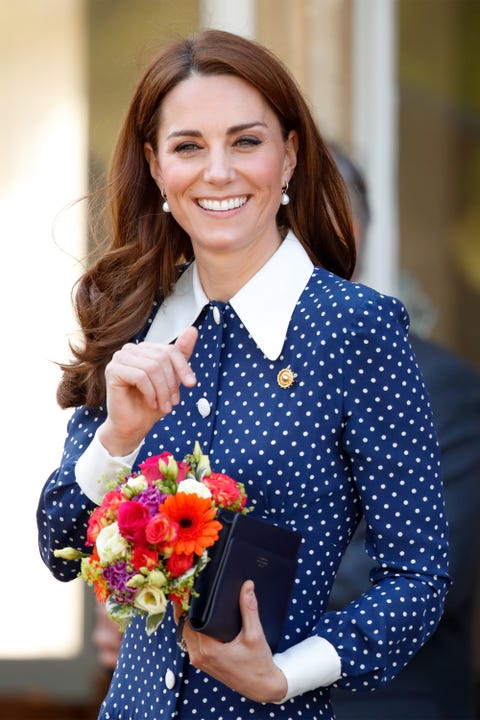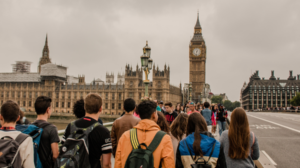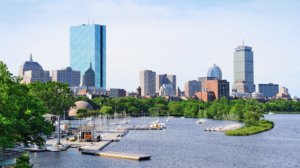I think that royal families are fascinating, especially for how they maintain traditional pomp and pageantry. Nobody does this better than the British Royal Family. Because I come from the United States–a country whose government was deliberately structured to be unlike the British monarchy–the idea of monarchy is foreign to me. I am a fan of the Netflix series The Crown, which is dramatic depiction of the life of Queen Elizabeth II. It is amazing that the 93-year-old queen is the longest-reigning monarch in history, and she has intimately experienced so much history and change during her lifetime. Given The Crown‘s popularity in America, clearly many other Americans are fascinated too. There have been a number of other series and films about British royalty in various periods recently, like Victoria, Wolfe Hall, and The Favourite. I think that in the next few months of living in England, I will gain a better understanding of what the relationship between British subjects and the Royal Family is really like. What is it like to be a “subject?” Evidently, 2019 and 2020 are turbulent years for the monarchy, or as Queen Elizabeth II described 2019, “quite bumpy.”

The Royal Family has been a popular conversation topic in the United Kingdom recently because of what tabloids have called “Megxit.” On January 9, Prince Harry, Duke of Sussex, and Meghan, Duchess of Sussex, made a shocking announcement that they would “step back as ‘senior’ members of the Royal Family.” Envisioning a “progressive new role,” they intended to become financially-independent and split their time between the U.K. and North America, while supporting the Queen. Prince Harry is the grandson of the Queen and sixth in the line of succession to the thrown. Many Brits found it appalling that the Queen was not consulted or even notified that the announcement would be made. The announcement was not all that surprising, given how in recent months the couple has expressed the strains of the public spotlight. Media have discussed how Prince Harry likely wants to protect Meghan from invasive and negative paparazzi attention, similar to what his mother, Diana, Princess of Wales, received. When Diana died in a car crash after being chased by paparazzi, Prince Harry was only twelve years old. Some say that Meghan had been treated unfairly and was racially targeted. The couple spent several weeks of personal time in Canada for a Christmas break. Although the public (predominantly younger generations) tend to support Prince Harry and Meghan’s decision, the couple’s popularity ratings have declined in recent days to 55% and 35% respectively. Some news stories have argued that Meghan now joins a group of women who have been lambasted for disrupting the monarchy –including Diana, Princess of Wales; Sarah “Fergie,” Duchess of York; and Wallis Simpson, Duchess of Windsor. The monarchy has evolved over time. The Crown highlights the struggles that royals, namely King Edward VIII and Princess Margaret, experienced while balancing their personal lives with the traditional expectations of the monarchy. King Edward VIII and Princess Margaret could not remain royals and marry their partners because their partners had been divorced. Flashforward to 2005, when it was acceptable that Prince Charles married Camilla Parker Bowles, even though they were both divorced. As an American and a person of color, Meghan shook up the precedents for British royalty.
On January 13, Prince Harry met with the most senior members of the Royal Family–Queen Elizabeth II, Prince Charles, and Prince William–to discuss the arrangements for what was then expected to be a quasi-royal role. The end result of this unprecedented royal summit is a more starker separation than originally expected. In a statement, Buckingham Palace announced that the Duke and Duchess of Sussex will no longer have royal duties, including military appointments, so they have said they will not use their HRH titles nor receive public funding. There will be a period of transition. Upon their original announcement, some Brits were upset that the royal couple were giving up their duties considering they had only recently spent £2.4 million (~$3.1 million) of taxpayer money to renovate their residence, Frogmore Cottage. The couple has agreed to refund the renovation. It is expected that they will spend most of their time in Canada. The cost of their security still remains a question, one that has been asked of Canadian Prime Minister Justin Trudeau. The British Royal Family is also the Canadian Royal Family, so will Canada grant Harry and Meghan royal treatment? People are now speculating about how they plan to earn money. Meghan was an actress on the television series Suits, so she will receive some payments each time a Suits episode is aired. My British boyfriend outlandishly suggested that perhaps the couple is trying to become the King and Queen of Canada, replacing Queen Elizabeth II as the reigning monarch.
This news story has received global attention. In the U.K., it has been widely discussed on television, radio, newspapers, and tabloids. The story even preempted discussions of Brexit, which has preoccupied conversations for the last couple of years. The U.K. will leave the European Union on January 31. Perhaps conveniently for the Royal Family, the story also distracted attention away from Prince Andrew’s departure from royal duties following a disastrous BBC interview about his involvement with convicted sex offender Jeffrey Epstein. The coverage of the Royal Family has prompted some thought about the role and expectations for the British monarchy. On one BBC news program I was watching, a commentator pointed out that in most other European royal families, most members are more-or-less ordinary people with non-royal careers. In those monarchies, only the senior-most members (i.e. reigning monarchs and monarchs-to-be) are fully treated as royalty and they focus on royal duties. Some Brits believe the Royal Family costs commoners too much money. Some locals I have spoken with think it would be a good idea for the monarchy to be “downsized” so to speak. The Royal Family is very wealthy; Business Insider reports that it is worth an estimated $88 billion, the Queen’s estimated personal net worth is $530 million. Most of the monarchy’s wealth is sourced from inherited land and investments. The royals own large swaths of land all across Great Britain. For example, I learned that Prince Charles, Duke of Cornwall, is in charge of the Duchy of Cornwall, which is a private estate of over 130,000 acres. The royals bring in revenue from tourist sites and merchandise that they own–such as Buckingham Palace. Taxpayers support the royals through the “sovereign grant,” which amounted to $104 million in 2019. Despite public complaints about the Royal Family, the public generally support the monarchy. A YouGov poll in 2018 found that “seven in ten Britons consider themselves monarchists and support the continuation of the royal family, while 21% oppose it. A separate survey at the end of 2019 found that 72% of people in the U.K. had a positive opinion of the queen.” Few, if any, political parties would dare to change the monarchy. Clive Lewis MP, shadow Treasury minister, is a Labour Party member who publicly launched a campaign to hold a referendum to decide the future of the Royal Family. His call to action seems to have fallen on deaf ears, since there has been no coverage of his idea since it was released.

Although the Royal Family costs taxpayers, it also provides economic benefits. This is an argument some local Brits have discussed with me. Industries such as tourism, entertainment, and fashion are stimulated by the public intrigue with the Royal Family. Major events, such as the wedding of Prince William and Kate Middleton, further boost the economy and perpetuate the captivating story of the royals. According to Fast Company, the royal wedding in 2011 generated an estimated $2.7 billion for the U.K. economy, “which saw a three percent increase in tourism” that year. Three billion people worldwide watched Prince William and Kate Middleton marry–“That’s three times the number of people who watched the opening ceremony for the Olympic Games in Beijing.” Fashion magazines and British media have praised Kate, Duchess of Cambridge, as a style icon. Her fashion choices, and the choices she makes for her children, set trends and affect clothing sales. Fast Company reports that this effect accumulates $1.3 billion for the U.K. fashion and shopping industry. The pomp and pageantry of the British Royal Family has its perks, especially because it is the most well-known royal family in the world.
If you travel abroad, I encourage you to keep up with current events. I downloaded the BBC app, so I can check out the major headlines each day. Other news sources may have email mailing lists. You can also pay attention to radio and television news. Interestingly, British news programs are commercial-free, and their news segments are longer and sometimes more in-depth than typical American television news. By staying informed, you will have more to discuss with fellow students and locals, and you will better understand the context of what is happening in the local society.










